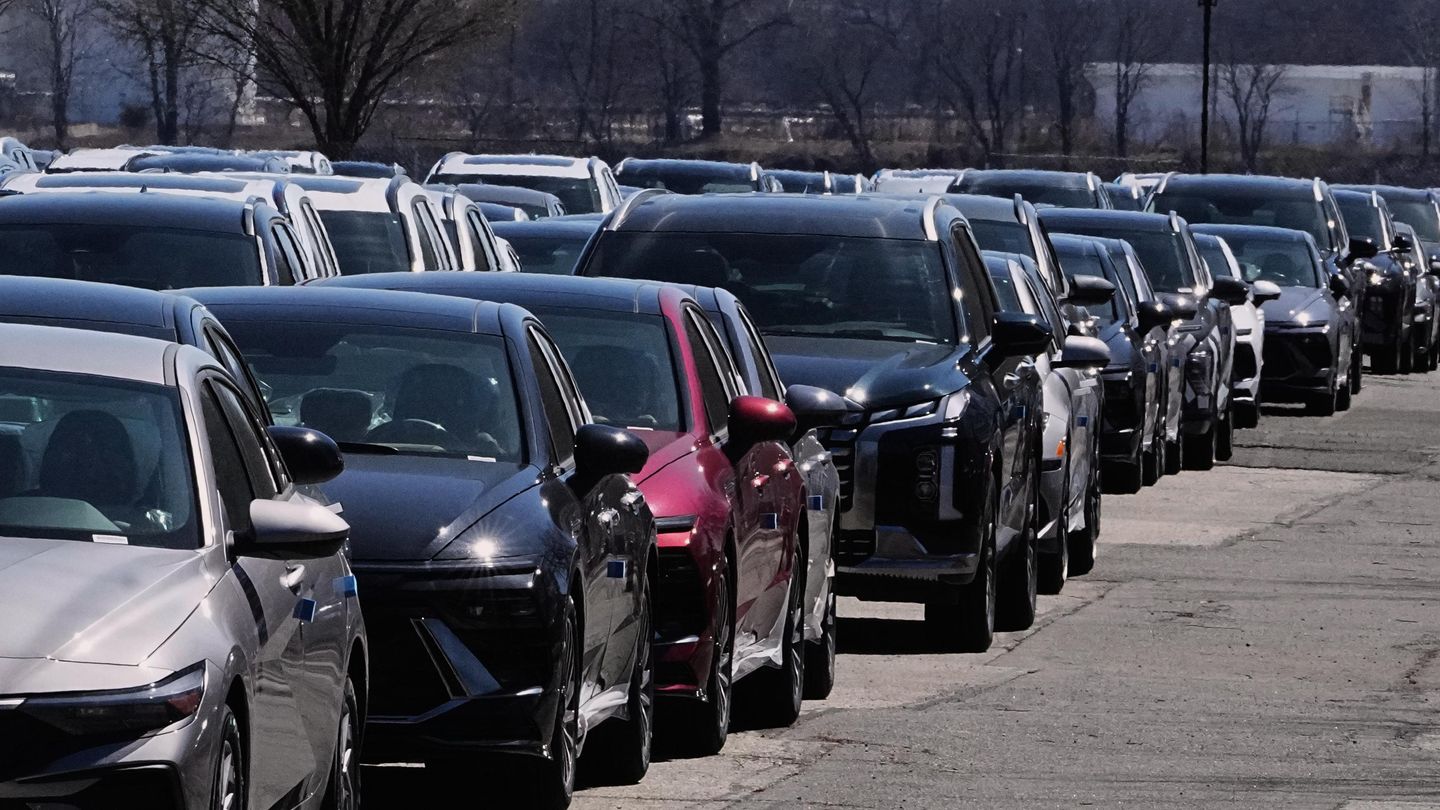
President Trump granted limited relief from his auto tariffs with an executive order Tuesday that keeps automakers from facing multiple forms of taxation under his system of levies.
The order exempts automakers that pay the 25% tariff on cars from other levies, such as Mr. Trump’s tax on imported steel and aluminum.
Automakers that assemble vehicles in the U.S. can also receive a reimbursement for tariffs paid on foreign parts equal to 3.75% of the value of the car. The rate will last for a year before it’s phased down to 2.5% in the second year, then goes away.
The administration said it’s an attempt to reward companies that assemble cars domestically while giving other companies a chance to reconfigure their supply chains.
“We just wanted to help them enjoy this little transition short term,” Mr. Trump said. “If they can’t get parts, we didn’t want to penalize them.”
Mr. Trump announced a 25% tariff on foreign-made cars this month. He’s imposing a 25% tariff on foreign vehicle parts that takes effect Saturday.
The White House announced the plan ahead of Mr. Trump’s trip to Michigan, where he’s holding a rally Tuesday to celebrate 100 days in office. The state is home to large U.S. automakers that lobbied for relief.
The decision was the latest sign that Mr. Trump plans to be flexible with his sweeping tariff plan.
Previously, he exempted certain electronics from tariffs on China. Canadian and Mexican goods that comply with the North American trade agreement from Mr. Trump’s first term have been excluded from new tariffs.
Still, the new tariffs are causing ripples across the economy.
U.S. automaker GM pulled its annual forecast and delayed an earnings call set for Tuesday amid uncertainty about the tariffs.
Wall Street has been on a roller-coaster ride, toggling between sell offs and rallies based on any sign of trade developments, while online retailers have debated whether to list the increased cost of tariffs next to regular prices.
Wall Street has been on a roller-coaster ride, toggling between sell offs and rallies based on any sign of trade developments.
Stocks rallied Tuesday after Commerce Secretary Howard Lutnick told CNBC he should have a foreign trade deal done “shortly,” though he declined to name the country.
The Dow Jones Industrial Average closed up 300 points, or 0.75%, while the S&P 500 and Nasdaq finished up nearly 0.6% apiece.
Online retailers, meanwhile, have debated whether to disclose the increased cost of goods due to tariffs.
A short-lived proposal to list tariff charges next to prices on the heavy-discount Amazon Haul site was slammed by the White House early Tuesday. Amazon said the idea was never authorized and won’t be happening.
Treasury Secretary Scott Bessent said Mr. Trump’s tariff plan would not cause supply problems for retailers, basing his belief on conversations with companies.
“I wouldn’t think that we would have supply-chain shocks, and I think retailers have managed their inventory in front of this,” Mr. Bessent said.
He said retailers “know that President Trump is committed to fair trade and have planned accordingly.”
The treasury secretary is at the heart of trade negotiations over Mr. Trump’s Liberation Day tariff plan that imposed a blanket 10% levy on all imports and higher tariffs on countries that sell plenty of products to U.S. consumers but don’t buy nearly as much from American producers.
Tariffs are a tax or duty paid by importers on the goods they bring in from foreign markets.
Mr. Trump says tariffs are a great way to force companies to return to America or keep their operations in the U.S., employ American workers and create revenue to fund domestic programs.
Mr. Bessent said the administration will make it easier for companies to set up shop in the U.S. so their goods no longer face tariffs, and he suggested that new tariff revenue could let Congress slash federal income taxes.
“I think we’re going to give them great certainty on this tax bill,” Mr. Bessent said.
Mr. Trump paused tariffs on dozens of nations to allow for negotiations. Mr. Bessent said India, South Korea and Japan are the furthest along in potentially reaching a deal to reduce trade barriers in exchange for tariff relief.
“India’s coming along great. I think we’ll have a deal with India,” Mr. Trump said.
China is a special case. It retaliated against Mr. Trump’s plan, resulting in tit-for-tat tariffs with the U.S. that exceed 100% on both sides.
Neither side seems willing to budge, but Mr. Bessent said the tariff level is unsustainable for China’s export-heavy economy so Beijing will be eager for a deal.
China says the U.S. should make the first move.
“This tariff war [was] launched by the U.S. If a negotiated solution is truly what the U.S. wants, it should stop threatening and exerting pressure, and seek dialogue with China based on equality, respect and mutual benefit,” said Foreign Ministry spokesman Guo Jiakun.












